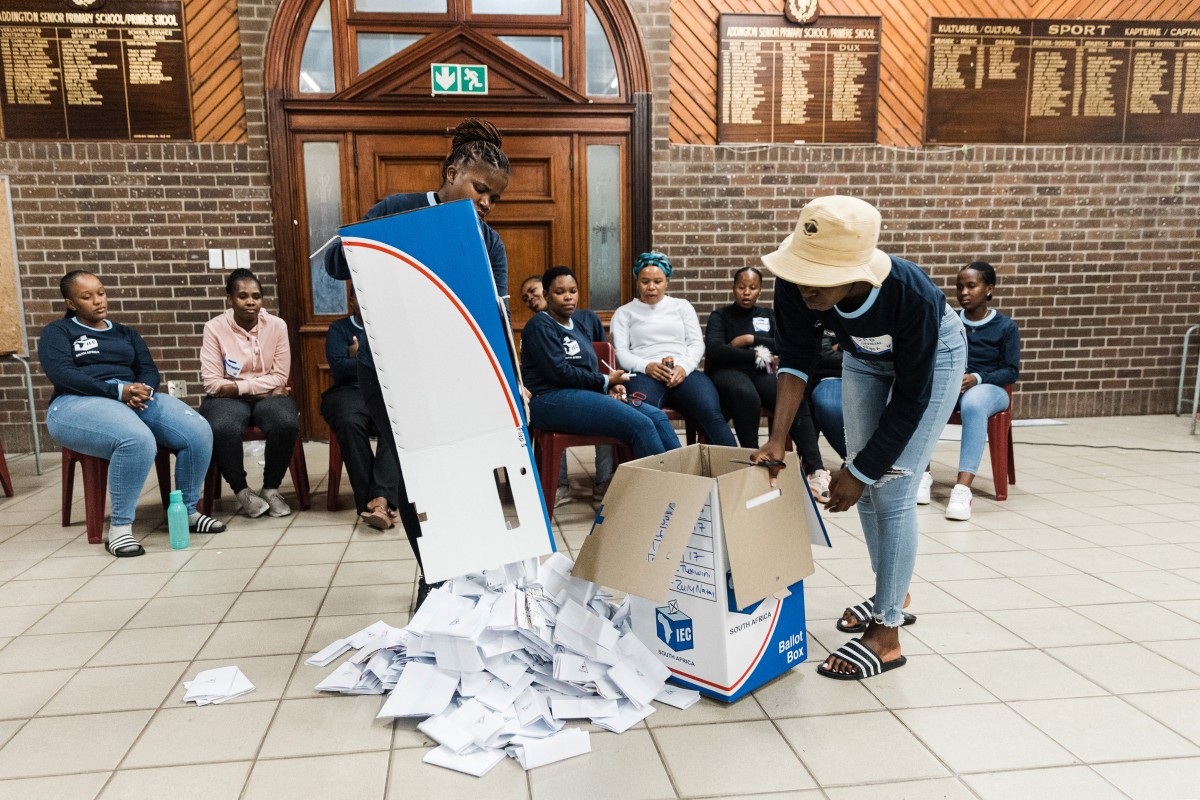Election: South Africa’s ANC loses majority
South Africa’s ruling ANC faced a search for allies to help it form a new government Saturday after it lost its three-decade-old absolute majority in a watershed election. With 99 per cent of the votes from Wednesday’s election counted, President Cyril Ramaphosa’s African National Congress (ANC) had only 40 per cent, a catastrophic slump from […]

TOPSHOT – Electoral Commission of South Africa (IEC) officials empty a ballot box during the vote counting process at Addington Primary School voting station during South Africa’s general election in Durban on May 29, 2024.(Photo by Rajesh JANTILAL / AFP)
South Africa’s ruling ANC faced a search for allies to help it form a new government Saturday after it lost its three-decade-old absolute majority in a watershed election.
With 99 per cent of the votes from Wednesday’s election counted, President Cyril Ramaphosa’s African National Congress (ANC) had only 40 per cent, a catastrophic slump from the 57.5 it won in 2019.
This marks a historic turning point for South Africa as the party has enjoyed an absolute majority since 1994 when liberation leader Nelson Mandela led the nation out of white-minority rule and into democracy.
The ANC must now either negotiate a coalition government, or at least persuade other parties to back Ramaphosa’s re-election in parliament to allow him to form a minority government reliant on other parties for support to pass budgets and legislation.
- Tinubu vows to make Nigeria Africa’s hub in electric vehicle revolution
- Nigerians groan as staple foods soar beyond reach
“We have been talking with everybody even before the election,” ANC’s deputy secretary general Nomvula Mokonyane said, saying the party’s NEC decision-making body would meet to decide on a course of action after final results are announced.
“It’s about ensuring that the stability both in government and stability in our country.”
She would not be drawn on whether the party might replace Ramaphosa after the party’s record poor showing, saying: “For now, it’s not an issue.”
Channels opened
As votes continued to be validated, data from the Independent Electoral Commission (IEC) showed the centre-right Democratic Alliance (DA) held second place with 21.71 per cent, slightly up on its 20.77 showing in 2019.
The party, which governs Western Cape province and has promised a free market agenda at odds with the ANC’s left-wing traditions.
Asked about the chances of a coalition with the ANC, Helen Zille, the DA party chairwoman, said: “Negotiations haven’t started but some channels have been opened, individuals talking to individuals.”
She also did not rule out allowing the ANC to attempt to rule alone, telling AFP: “A minority government would be something completely new in South Africa but it is an option amongst others”
But it was not a surge by the DA that cut into the ANC’s vote share.
In third place was former president Jacob Zuma’s uMkhonto weSizwe (MK) on 12.6 per cent, a surprise score for a party founded just months ago as a vehicle for the former ANC chief.
The radical leftist Economic Freedom Fighters (EFF) was in fourth with 9.4 per cent.
